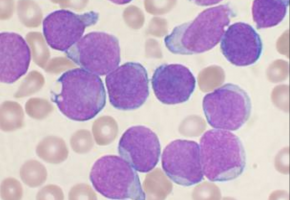
Outcomes for patients with refractory, aggressive non-Hodgkin lymphoma (NHL) are poor with current therapies.
Axicabtagene ciloleucel (axi-cel) is an anti-CD19 chimeric antigen receptor (CAR) T cell therapy.
ZUMA-1 is the first multicenter trial of axi-cel in refractory, aggressive NHL.
In this phase 2 trial, 101 patients with diffuse large B cell lymphoma (DLBCL), primary mediastinal B cell lymphoma (PMBCL), or transformed follicular lymphoma (TFL) with refractory or relapsed disease, received axi-cel at a target dose of 2 x 106 cells/kg.
ZUMA-1 met the primary study endpoint with an objective response rate (ORR) of 82% (n = 92; P<.0001).
In the modified intent-to-treat population of all 101 patients who received axi-cel treatment, the ORR was 82% including a complete response (CR) rate of 54%.
These responses were consistent across key covariates including disease subtype, refractory status, stage, and International Prognostic Index score.
The CR rate observed in this trial was 7-fold higher compared with historical controls and after a median follow up time of 8.7 months, nearly half of the patients had an ongoing response.
Common grade ≥3 treatment-emergent adverse events were neutropenia (66%), leukopenia (44%), anemia (43%), febrile neutropenia (31%), and encephalopathy (21%).
Grade ≥3 cytokine release syndrome and neurologic events occurred in 13% and 28% of patients, respectively.
These results show that treatment with axi-cel significantly improves ORR with a manageable safety profile in patients with few other treatment options.
Watch the video interview and press conference for more.
Source: EHA
We are an independent charity and are not backed by a large company or society. We raise every penny ourselves to improve the standards of cancer care through education. You can help us continue our work to address inequalities in cancer care by making a donation.
Any donation, however small, contributes directly towards the costs of creating and sharing free oncology education.
Together we can get better outcomes for patients by tackling global inequalities in access to the results of cancer research.
Thank you for your support.